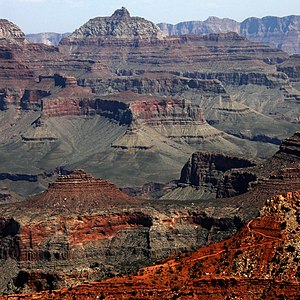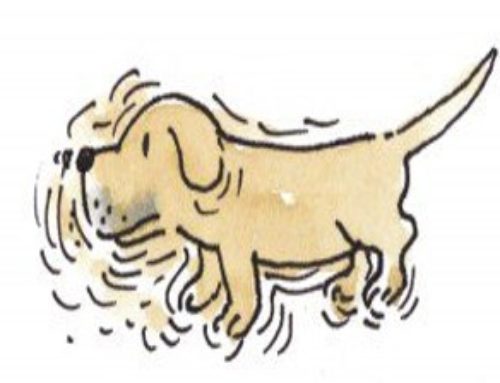 Image via Wikipedia
Image via WikipediaJohn Red Stone (real person, but not his real name) is full-blooded Navajo. He is also a gifted musician bringing the richness of traditional Navajo music to ears unfamiliar with the tones or rhythm.
His effort to keep this music alive in the face of modern American life captured me. He is also feeding himself and his family as a musician—difficult for anyone, but more so for someone whose art is multiple standard deviations from mainstream.
This is the story of John Red Stone making life more difficult for himself by misunderstanding his Brand.
In one of our most-read posts, we asserted Brand is a promise—a promise about how your company will act, deliver products, serve customers, and quite generally, behave.
Brand is a promise your company will keep when times are good…and when times are bad. A Brand is, fundamentally, what customers can trust you to do. (To those of you who say Brand is “what others think of you,” please please read that previous post. It’s not that you are wrong, but you are giving up on guiding your destiny—and no CEO, no CMO…no executive worth their stripes…can afford that.)
“Brand as promise” gets clearer with examples…and with apologies to John Red Stone, the nature of Brand promise is often most clear when things go wrong.
Mr. Red Stone is the most micro of entrepreneurs. My family recently took a train to the Grand Canyon and Red Stone was among the team of semi-independent people offering onboard entertainment. Red Stone, with his guitar, moved among train cars introducing hundreds per day to the authentic, traditional sounds of his ancestral Navajo. He would translate the words in advance, impressing anyone listening how the themes of life, love, and humanity change little among diverse peoples.
And then he told jokes.
He told jokes so bad my 8 year old groaned. He told jokes so bad you were embarrassed for him. AND he told the same agonizing jokes—word for word and at the same spot in her performance—in both directions on the train. Apparently he was told mainstream American tourists love jokes. He also hocked his CDs, website, and tip jar. As near as I could tell, his selling pleas fell on deaf ears.
Mr. Red Stone does not understand his own Brand promise.
He is among the last of his genre. He is one of the only people–and most likely THE only person most of his listeners will ever hear—doing what he is doing: dedicating his life to ensuring the beautiful music of the Navajo nation lives.
THAT is a Brand. And it doesn’t include terrible jokes that cheapen his performance and drive his audience to their always-handy headphones.
To be clear, his real Brand promise won’t seduce all listeners. NO Brand is for everyone. But instead of reaching, essentially, no one by trying to be something for everyone, he would reach those who resonated with this life mission…his Brand.
He would have reached me.
Even reaching me alone would have increased his “paying customers” on our train car from zero to one. And I bet he’d do much better. He would have given parents a reason to ask their kids to put down their iPad games and listen to a musical form that may die within their lifetimes.
Mr. Red Stone didn’t have the confidence, clarity, or conviction to be true to his Brand. Do you?
TAKEAWAYS
- Brand isn’t a logo and it isn’t a tagline. Brand is a promise of how you will behave…even when keeping that promise is expensive or, in the short term, unprofitable. You MUST know your promise.
- You must articulate this promise to employees. And willingness to keep this promise must be a requirement for continued employment.
- You must be clear with customers about this promise. Sure, you can tell them: “Quality of Job 1,” or “Always the Low Price. Always.” but your parents taught you: actions speak louder than words. They do.





